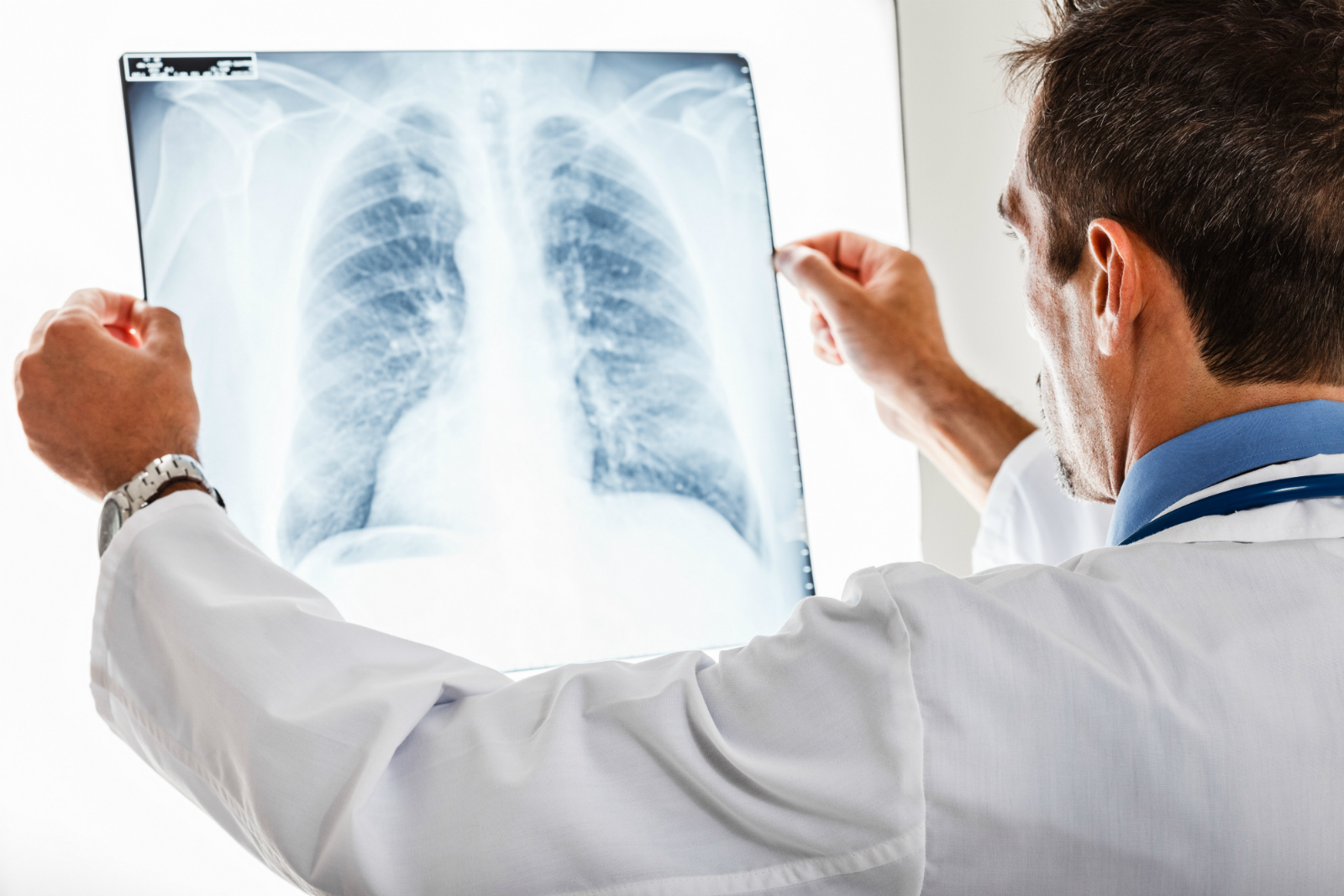New technology is changing how pathogens are identified in lower respiratory tract specimens. Multiplex PCR panels now on the market can identify pathogens in hours with significantly increased sensitivity compared to routine culture methods. The increased sensitivity of these products is a benefit for antimicrobial stewardship efforts because of the increased confidence of a negative result for bacterial pathogens. If clinicians are able to get rapid and reliable negative results they can remove unnecessary empiric antibiotics and improve antibiotic stewardship efforts at their institutions.
Several studies have looked at the potential changes to empiric antimicrobials based on a BioFire Pneumonia Panel results. These studies show that the BioFire Pneumonia Panel would have led to de-escalation of empiric antimicrobial therapy in about 50% of patients1,2. It is important that these tools are implemented within the context of antimicrobial stewardship so that these de-escalation gains are realized in routine patent management. Amanda Harrington, PhD D(ABMM) and Fritzie Albarillo, MD will discuss the laboratory and clinical collaboration necessary to implement the BioFire Pneumonia Panel within an established antimicrobial stewardship program.
- Buchan B.W. et al. Clinical Evaluation and Potential Impact of a Semi-Quantitative Multiplex Molecular Assay for the Identification of Pathogenic Bacteria and Viruses in Lower Respiratory specimens. American Thoracic Society Conference, May 20th 2018, San Diego, CA. Poster A107.
- DeBoer D. et al. Comparison of a molecular multiplex lower respiratory tract (pneumonia) panel to conventional culture: potential enhancement of antimicrobial management in hospitalized patients. Clinical Virology Symposium, May 5th 2019, Poster 47.
Speakers

Amanda T. Harrington, PhD, D(ABMM), Director, Clinical Microbiology Laboratory, Loyola University Medical Center
Amanda Harrington is an Associate Professor in the Department of Pathology and Laboratory Medicine at Loyola University Chicago and Director of the Clinical Microbiology Laboratory at Loyola University Medical Center in Maywood, IL. She earned her doctoral degree in microbiology from the University of Kansas, did her post-doctoral fellowship training in clinical microbiology at the University of Washington in Seattle, WA, and she is a diplomate of the American Board of Medical Microbiology. She is a member of the Association for Molecular Pathology as well as the South Central Association for Clinical Microbiology. She is currently serving as the President for the Illinois Society for Microbiology and is an active member of the American Society for Microbiology. Her research interests include rapid diagnostic and molecular-based testing and metrics based assessment of quality in clinical microbiology and infectious diseases.

Fritzie Albarillo, M.D., Infectious Disease Physician, Loyola University Medical Center, Assistant Professor, Loyola University Stritch School of Medicine
Dr. Fritzie Albarillo is an Assistant Professor of Medicine, Division of Infectious Diseases at Loyola University Medical Center (LUMC). Dr. Abarillo received her medical degree from Cebu Doctors’ University School of Medicine in the Philippines. She completed her Internal Medicine Residency training at St. Francis Hospital in Evanston and her Infectious Diseases Fellowship training at LUMC. She is currently the Medical Director of Antimicrobial Stewardship Program at LUMC and provides consultation in general infectious diseases and infections in transplant recipients and immunocompromised hosts. She is also a member of the Infectious Disease and Immunology Research Institute at Loyola University Chicago. She is board certified in both Internal Medicine and Infectious Disease by the American Board of Internal Medicine. She is an active member of Infectious Diseases Society of America (IDSA) and American Society of Transplantation (AST). Dr. Albarillo’s research is focused on antimicrobial stewardship interventions and outcomes, clinical outcomes of infections secondary to resistant organisms, and infections in immunocompromised hosts.
Who Should Attend?
- Antimicrobial Stewardship Program Team Members
- Infectious Disease Clinicians
- Critical Care Clinicians
- Clinical Laboratory Professionals
What You Will Learn
- Discuss the benefits and challenges with implementing a syndromic multiplex PCR panel for Pneumonia
- Understand how antimicrobial stewardship efforts are important to appropriate utilization of syndromic multiplex PCR panels for Pneumonia
- Engage with appropriate clinical stakeholders within their institution to discuss implementing a syndromic multiplex PCR panel for Pneumonia
Xtalks Partner
BioFire
With more than 25 years of molecular experience, BioFire Diagnostics, LLC sets the standard for molecular diagnostics through its pioneering advances in syndromic infectious disease testing. The syndromic approach is a symptom-driven diagnostic method that combines a broad grouping of probable pathogenic causes into a single, rapid test. This allows physicians to easily choose the right test, the first time. Our innovative team leads the industry in infectious disease diagnostics and provides molecular solutions that lessen the time to medical results, empower healthcare professionals to make better diagnostic decisions and lower healthcare costs. We are committed to improving the quality of life for everyone, everywhere, every day.
You Must Login To Register for this Free Webinar
Already have an account? LOGIN HERE. If you don’t have an account you need to create a free account.
Create Account


